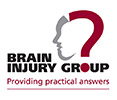The Inquest Process
The inquest process involves 4 key steps: opening the inquest, gathering the evidence, pre-inquest hearings and the inquest. The early stages in the inquest procedure lay the foundations for what happens at the inquest. Depending on the circumstances, gathering evidence can take a long time and this can be hard to cope with when you are recently bereaved. You will find our inquest solicitors are compassionate and supportive during throughout the inquest process.
Opening the Inquest
When someone has died and the Coroner has requested an Inquest, the usual procedure is to “open” the inquest as soon as possible after the death. Then the Coroner postpones the hearing so the family can have a funeral.
Gathering Evidence
The Inquest hearing will not take place until the investigations are complete. We understand that you might find the delays frustrating but this allows the Coroners time to investigate carefully and uncover all the information possible from experts and interested parties. This information is essential as the Coroners need to gather as much detail as possible and read through the documents carefully so they can establish liability when it comes the inquest.
Coroners ask for a variety of investigations so they can gather different types of information, depending on the circumstances of the death. For example:
- reports from the Health and Safety Executive if a person has died at work,
- criminal investigations if a person was murdered,
- police reports after a car accident and
- reports from medical experts in the case of clinical negligence.
Usually the Coroner will request their own reports. As specialist inquest solicitors we sometimes recommend that you instruct your own expert(s). They will provide extra evidence that can be submitted as documents and admitted by the Coroner. There is no fixed answer to the question “How long does an inquest take” as so much depends on the circumstances of the inquest. You and your family might find this difficult time as it can take many months until the inquest takes place and sometimes longer. We understand that this adds to your emotional strain so we will do everything we can to help you during the process. Our inquest solicitors will support you and we will help you to get your questions heard when the time comes.
Pre-inquest Hearings
During this time the Coroner may hold several meetings in person (known as pre inquest hearings). The Coroner uses these meetings to make sure everyone involved understands the issues that will be considered at the inquest.
Your solicitor will attend those hearings on your behalf and we put forward concerns you have raised. After these meetings, we will tell you if we think you need your own expert evidence, if you haven’t already got it. The Coroner has the final decision about calling witnesses and who can be represented at an inquest. We will do our best to make sure the Coroner hears all the evidence that is important to your case.
The Inquest
When people ask the question “What is an inquest?” they are typically asking about this stage in the Inquest process. This is sometimes known as the inquest hearing. Usually an inquest is held in a court before a Coroner alone. Sometimes there will be a jury, for example, if a person has died in prison or police custody or if someone is fatally injured at work or dies in suspicious circumstances in a hospital or care home.
Relatives can ask witnesses questions at the inquest. However, you will probably find the hearing very upsetting so we recommend that your lawyer asks questions on your behalf. We will talk about this with you when we are preparing for the inquest and will tell you what to expect.
The Coroner does not decide if someone is responsible for the death but they can give a narrative conclusion. This conclusion can help us to decide if a compensation claim is possible because it details any failings which have contributed to the death.
After the inquest process – next steps
We understand that you might want compensation or you might want an apology and a commitment to improve procedures and we will do our best to help you achieve that. If you’d like to discover how we have helped other clients, take a look at our case studies pages. You can read how we’ve supported clients during clinical negligence claims and fatal claims.









